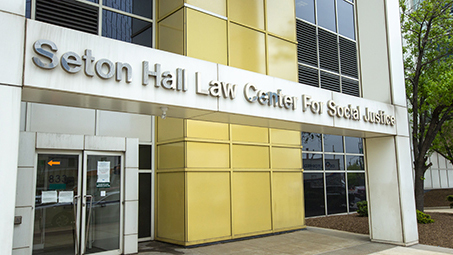Inside the Core, Jonathan Heaps Gave Lonergan Lecture
Monday, May 13, 2024

Jonathan Heaps, Ph.D.
Inside the Core we are very happy to share that Jonathan Heaps, Ph.D., Core faculty member and director of the Bernard Lonergan Institute, was a main speaker at the 2024 West Coast Methods Institute at Gonzaga University. The theme of this annual meeting was "What is 'Going Forward' in History? Progress, Revolution, and the Philosophy of History" on April 25 to 27, 2024. As the website for the institute explains, "Historical consciousness and historical understanding are central themes in Lonergan’s philosophical and theological writings. Yet his treatments of historicity and historical development also depart in important respects from broader emphases on historicism and historical consciousness in nineteenth- and twentieth-century thought." Bernard Lonergan, Canadian Jesuit philosopher, was a very important figure in twentieth century Catholic philosophical and theological thought. His influence continues, particularly at Seton Hall, where Monsignor Richard Liddy began the Lonergan Institute, with Jonathan Heaps now in that important role. Jonathan also edits The Lonergan Review.
A brilliant polymath, interested not only in theology and philosophy, but also science, economics, politics and psychology, Lonergan is the inspiration also of Seton Hall’s Praxis Program, started by Monsignor Liddy and led by Danute Nourse, Linda Garafalo, and Francia Peterson. Many Core faculty participate, including myself. Each year the group benefits from the leadership of the Toth-Lonergan scholar; this year and next year, the Toth Lonergan scholar-in-residence is Francesca Zaccaron, Ph.D., who teaches in the Core. What Jonathan Heaps is doing is intimately linked to a nucleus of mission activity here at Seton Hall, with Lonergan epitomizing the emphasis on heart, mind and spirit that is central to who we are and what we hope to enhance as we progress through the third decade of the twenty-first century.

Jonathan Heaps, Ph.D., lecturing at the West Coast Methods Institute.
Jonathan Heaps was the "Bernard J. Tyrrell, S.J., Lecture in Philosophy of God and Theology" speaker. His lecture was on "The Ambiguity of Being: Lonergan and the Problems of the Supernatural." His participation at the institute as a main speaker was an honor for Seton Hall and shows the importance of this connection between the thought of Bernard Lonergan and our institution. Lonergan is also linked to what the Core represents, as Jonathan Heaps says, "Father Lonergan believed there was no contradiction between, as we do in the Core, working to remember and retrieve the past achievements of the Catholic Intellectual Tradition and striving to think at the level of one's own time. My lecture at Gonzaga tried to exemplify how such retrieving can provide material to address contemporary intellectual challenges."
The Catholic Intellectual Tradition is, at its best, both ancient and new, as it is rooted in the origins of faith but always looking outward, as Heaps said, to the contemporary world and how to address its problems and concerns. Bernard Lonergan represented this merging of deep tradition with engaged involvement in the contemporary world. We are grateful that one of our own Core faculty and key member of the Seton Hall Lonergan community was a main speaker at the Institute focusing on Lonergan’s thought as applicable to our times.
Categories: Education, Faith and Service, Research





